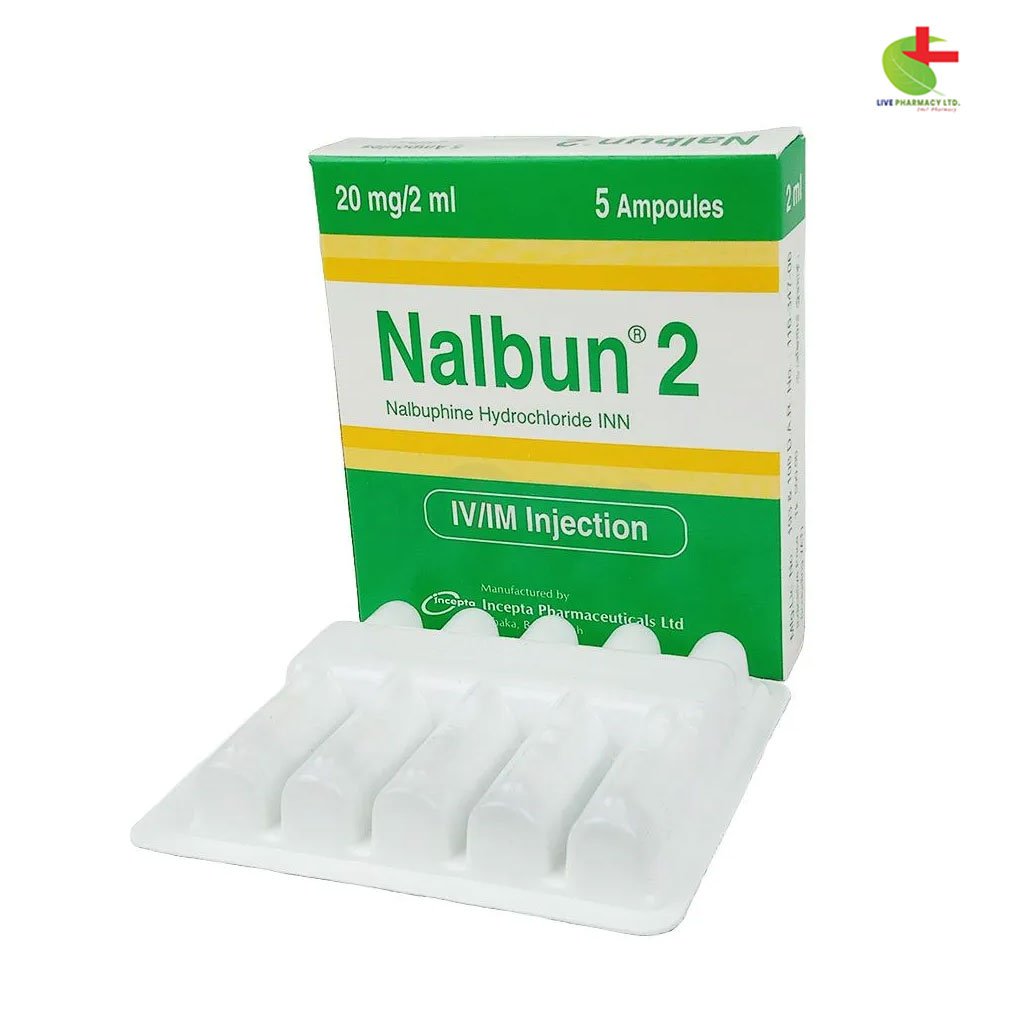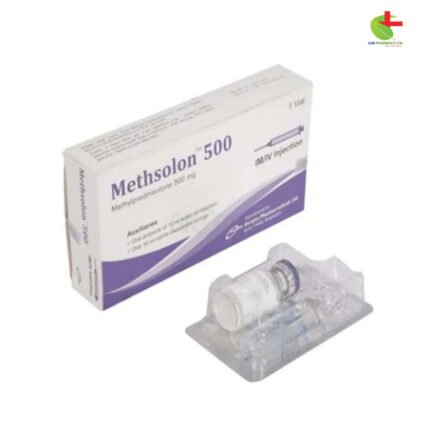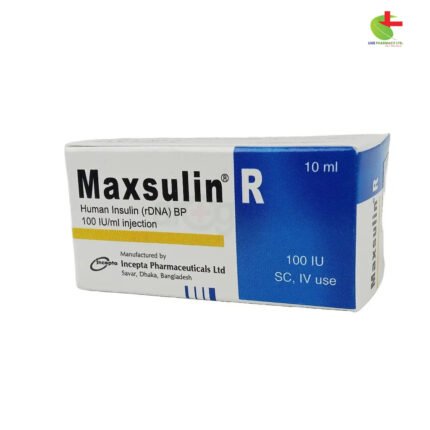Nalbun 2
100.00৳ Injection (2ml)
- Nalbun is a potent analgesic effective for the relief of moderate to severe pain, including pain associated with myocardial infarction.
- Manufactured by Incepta Pharmaceuticals Ltd. and available through Live Pharmacy, Nalbun serves as an adjunct in balanced anesthesia and provides effective obstetrical analgesia during labor and delivery.
- Its quick onset of action and versatile application make Nalbun a vital option for pain management in various clinical settings.
 Brand
Brand
|
Incepta Pharmaceuticals Ltd |
|---|---|
 Generics
Generics
|
Nalbuphine |
 Type
Type
|
IM/IV Injection |
Indications
Nalbuphine Hydrochloride is prescribed for the management of moderate to severe pain. This medication is effective for alleviating pain related to myocardial infarction (MI). Additionally, Nalbuphine Hydrochloride serves as an adjunct for balanced anesthesia and is used for pain relief during preoperative and postoperative phases, as well as in obstetrical settings during labor and delivery.
Always consult a registered healthcare professional before using this medication.
Pharmacology
Nalbuphine Hydrochloride is a synthetic, potent analgesic comparable in strength to morphine on a milligram basis. It interacts with mu, kappa, and delta opioid receptors but does not bind to sigma receptors. As a kappa agonist and partial mu antagonist, Nalbuphine acts swiftly, typically taking effect within 2 to 3 minutes following intravenous administration, and within 15 minutes after subcutaneous or intramuscular injections. The plasma half-life of Nalbuphine is approximately 5 hours, with analgesic effects lasting from 3 to 6 hours in clinical studies.
Dosage & Administration
For adults, the standard recommended dosage is 10 mg for a 70 kg individual, administered via intramuscular or intravenous injection. This dosage may be repeated every 3 to 6 hours as needed. Adjustments should be made based on the intensity of the pain, the patient’s physical condition, and any concurrent medications.
- Moderate to Severe Pain: Administer 10-20 mg intravenously or intramuscularly for a 70 kg patient, adjusted as necessary; for children, the dose is typically 0.3 mg/kg, repeated once or twice if needed.
- Preoperative Anesthesia: Administer 0.1-0.2 mg/kg via intravenous or intramuscular injection.
- Obstetrical Analgesia: For labor and delivery, administer 0.3-1 mg/kg intravenously over 10-15 minutes, with maintenance doses of 0.25-0.5 mg/kg as required.
- Intraoperative Analgesia: Inject 0.25 – 0.5 mg/kg intravenously at 30-minute intervals.
- Myocardial Infarction: Administer 10-20 mg via slow intravenous injection, with the option to repeat after 30 minutes if necessary. Higher doses may be required when used to supplement anesthesia.
- Pediatric Patients (18 months to 15 years): The usual dosage is 0.2 mg/kg, preferably given via intravenous or intramuscular injection, with maintenance doses every 4 to 6 hours as directed by a physician.
Always consult a registered healthcare professional before using this medication.
Interaction
No significant hazardous interactions have been identified with Nalbuphine. However, similar interactions with other opioids may occur. Patients taking narcotic analgesics, general anesthetics, phenothiazines, tranquilizers, sedatives, hypnotics, or other CNS depressants (including alcohol) may experience an additive effect when using Nalbuphine.
Contraindications
Nalbuphine Hydrochloride should not be used in individuals with known hypersensitivity to the medication.
Side Effects
Nalbuphine is generally well tolerated, but some patients may experience side effects such as sedation, sweating, nausea, vomiting, dizziness, vertigo, dry mouth, headache, respiratory depression, dyspnea, and asthma.
Pregnancy & Lactation
Categorized as pregnancy category B, Nalbuphine crosses the placenta quickly and extensively. Controlled studies in pregnant women are lacking, so it should only be administered during pregnancy when absolutely necessary. Limited data indicate that Nalbuphine is present in breast milk in small amounts (less than 1% of the administered dose) with minimal clinical effect. Caution is advised when administering this medication to nursing mothers.
Precautions & Warnings
Exercise caution in patients with:
- Impaired respiration
- Impaired renal or hepatic function
- History of biliary tract surgery
- Myocardial infarction
- Hypotension
Overdose Effects
Symptoms of overdose may include drowsiness and mild dyspnea. The specific antidote for Nalbuphine overdose is an opiate antagonist, such as Naloxone or Nalmefene, administered intravenously. Additional supportive measures, such as oxygen therapy, intravenous fluids, and vasopressors, may be necessary.
Therapeutic Class
Opioid analgesics
Storage Conditions
Store below 30°C, protected from light, and out of reach of children.













Reviews
There are no reviews yet.